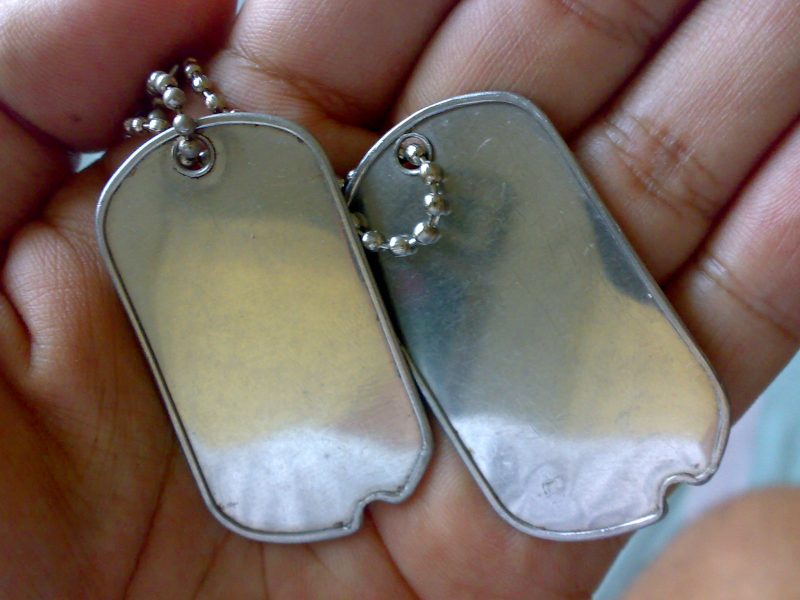Laurie Lubin visited Rockaway Beach in 1966 when she was almost 14 years old. She found a pair of dog tags on a chain with a mezuzah, a small metal pendant worn by some Jewish servicemen. She immediately recognized them as WWII dog tags because her father had a set with a mezuzah, just like the ones she found on that beach.
What followed for Lubin was a 50-year search to return the tags to the family of the serviceman that had worn them. The tags had the name “Irving Isaacs” engraved in them, so she began looking in New York City phone books for that name. She couldn’t find him there. Over the next several decades, she would periodically pick up the search but would always hit a dead end. It became a joke within her family.
In February of this year, she saw a story on the Associated Press about dog tags that were returned to a family in Indiana after being found in Saipan, an island in the Pacific.
She reached out to the AP, who put her in touch with Randy Herschaft, a researcher for the organization. He began looking up information on two veterans from New York named Irving Isaacs. One had changed his name and moved to California. He passed away in 1994. The other remained in New York until he died in 1992.
Lubin was able to find the daughter of the soldier that had moved to California. She confirmed that her father had lived in New York, changed his name after the war and moved to California. Lubin sent her the tags, believing that they had belonged to her father.
Later, Lubin heard from Herschaft that his research had proven that the tags actually belonged to the other Isaacs in New York. The tags were returned from California, and Lubin began searching New York for any relatives of Isaacs. She located an Audrey Berk, the daughter of Isaacs.
When Lubin called Berk to tell her she had her father’s dog tags, Berk said that she was shocked. “Then we started talking, and I know her family, which is even more shocking.”
Berk lived in an apartment complex with Lubin’s husband’s ex-wife and kids. Berk knew the Lubin family even though she had never met Laurie. “She would wait here and get the stepkids from my neighbor. I know the whole family,” Berk said.
The two met on August 22 at a restaurant where Lubin handed the tags to Berk. “It was just amazing. I was speechless,” said Berk. She plans to send one of the tags to her sister, Joanne Isaacs, in Flagstaff, AZ.
Lubin said she’s glad she stayed with the search for all those years. “I’m just so happy to return it to them,” she said. “Bashert,” she added in Yiddish. Roughly translated, it means, “It was meant to be.”
